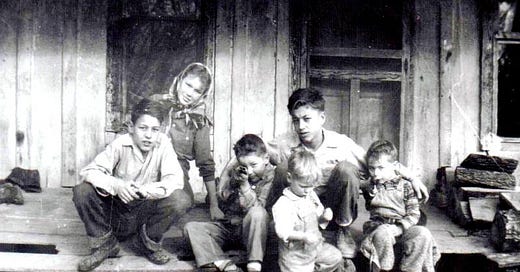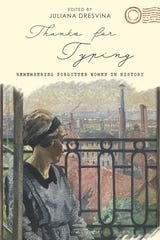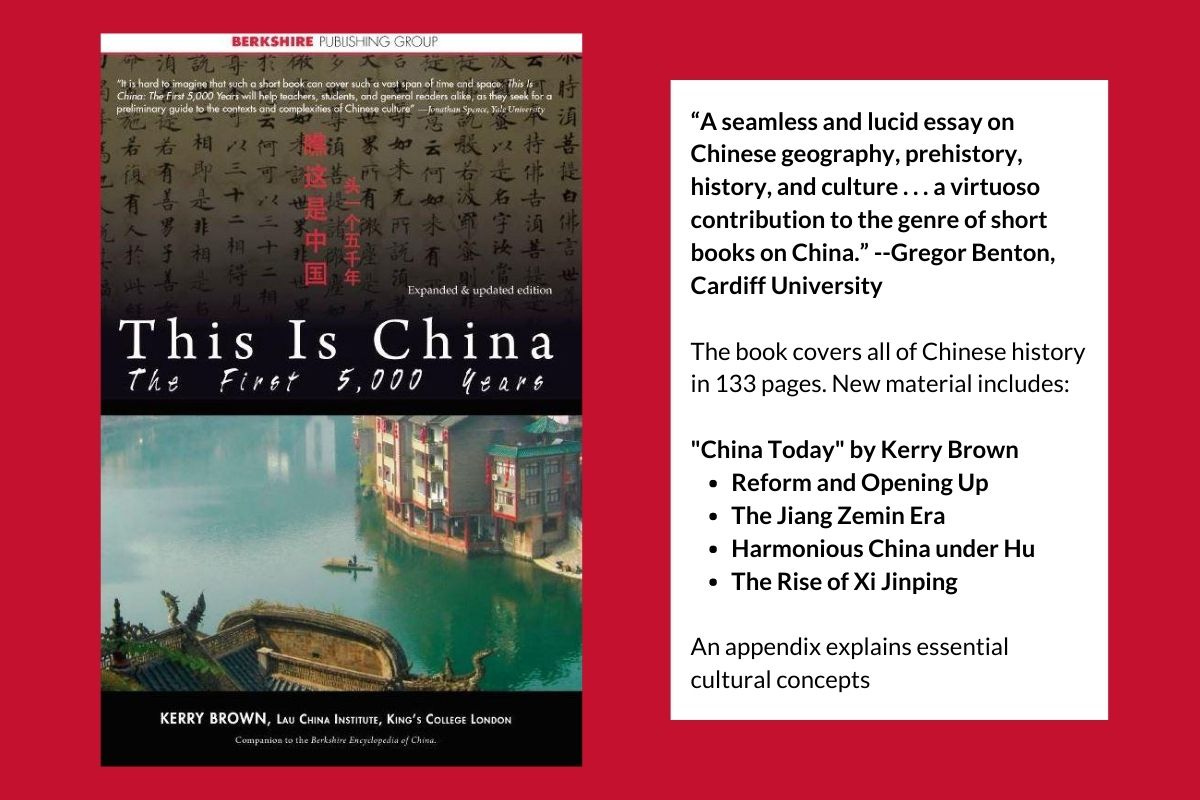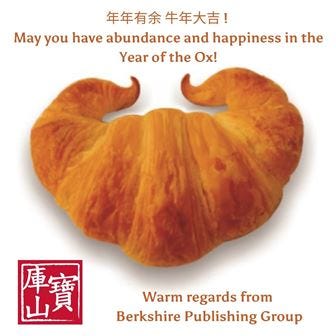My hillbilly elegy
Rural-urban connections, #thanksfortyping, a free China eBook, & (yes!) a poem
It’s now September 2024 and I flinch when I see my headline for this letter. The author of Hillbilly Elegy has turned out to be a creepy character and a vice-presidential candidate. I’d thought when I read the book that he might go into politics, and he’d be more conservative than I am but the kind of conservative who thinks seriously and holds to an ethical position or religious beliefs. It’s a question any reader asks from time to time: how could someone like that write a good book?
When I watched the movie Hillbilly Elegy I couldn’t help thinking of this photograph. It shows my mother with her Missouri cousins in 1948. Her family lived in Iowa and her father was a tenant farmer - a sharecropper - in spite of having a college education. They had no electricity until after she left home. (Rural Iowa seems to have been one of the last places in the US to be electrified.) But she says that the cousins were the ones who “lived in the sticks.”
Cousin Paul writes, “I wonder if the house is where my grandfather lived. He lost his farm in Iowa during the Depression. After his wife died he moved to southern Missouri where land was cheap. He could never get enough money together to buy a farm and worked for a large farmer just across the state line in Missouri.”
Like most of the kids I grew up with, my parents had risen in the world. My dad was the first in his family to go to college. He went to Purdue after the Korean War on the GI Bill. Electrical engineering took him into computers, and my brothers and sister and I grew up in the Silicon Valley suburbs.
And this isn’t unusual. Plenty of cosmopolitan people grew up in rural areas. Social mobility is something that makes a country dynamic and its people happier. When we talk about economic inequality, we’re often talking about a lack of mobility, an absence of the mechanisms that make it possible for people to choose new paths and make use of their talents.
In 2019, I wrote: “Reading the news, you’d think that cities and rural areas are natural enemies. Rural regions are either ignored entirely or thrown the kind of payout that rankles the urban and suburban taxpayers who have to foot the bill.” in Bridging the Rural-Urban Divide by Bringing Back the Berkshire Line. I think of those not-so-distant relatives when I read about rural America in the 21st century. I think of the local Republicans here in Great Barrington, who endorsed me when I ran for selectboard and supported me when I was on the School Committee, not because I agreed with them about everything but because I cared about their financial concerns and their history.
The movie Hillbilly Elegy is based on a memoir that came out in 2016. It’s the story of a man who grew up in so-called “red” America, in a broken family, with a mother addicted to opioids. He makes it through school, joins the Marines, goes to college, and then gets into Yale Law School.
It is a quintessentially American story but it annoyed people on left and right. Progressives didn’t like the author’s conservative belief in self-reliance, and conservatives didn’t much like his depiction of the rural America he grew up in.
Rural-urban conflict is real, not just in the United States but in the UK, in France, and right now in India, where farmers are engaged in major protests.
And rural-urban conflict is part of the story of the Cultural Revolution, as I was reminded this week as I read a mystery by Qiu Xiaolong, who also translates T. S. Eliot into Chinese. It’s called Becoming Inspector Chen, and weaves a modern story with the childhood story of the series’ main character, Chen Cao, set during the Cultural Revolution.
Mao Zedong built his movement on the peasant class - the rural poor. During the Cultural Revolution (1966-1976), people from the despised “black” merchant class and the even more despicable intellectual class were sent to work on farms, to learn from the peasants.
Today, in contrast, I’m told there’s a Chinese word used to dismiss the new rich that is the equivalent of “hayseed” or “hick.” China is increasingly urban. Economic inequities persist, and integrating rural communities into the new China is still a major challenge.
But here’s what I find intriguing: the Lunar New Year, when people traditionally go home for the holiday, is still a celebration of rural roots, of the laojia, the old home where one’s ancestors are buried. To give you a sense of this, we’ve posted a video from China, a Public Service Announcement shown on CCTV. It vividly show the sense of homecoming that is part of the New Year experience in China.
While I can’t imagine making a pilgrimage to my peripatetic family’s long-ago home, maybe it would be a good thing to be reminded every year of where we come from.
Useful links about rural America
Daily Yonder newsletter about rural life in today’s America. Recommended.
Brookings Report: The ‘rural-urban divide’ furthers myths about race and poverty—concealing effective policy solutions “… Conflating “rural” with “white” propagates an incomplete story of rural America that centers white political anxieties…at a time of unprecedented crisis in which Black, Latino or Hispanic, and Native American rural communities are disproportionately devastated by the COVID-19 pandemic and require coordinated fiscal relief to survive.”
Pew Research Center Report: In U.S. and UK, Globalization Leaves Some Feeling ‘Left Behind’ or ‘Swept Up.’ “Their stories often linked to broader illustrations of what constitutes globalization. This was particularly true when participants spoke about changes due to industrial shifts, automation and the growing influence of multinational corporations. All three were consistently described as negatively impacting local communities – in contrast to growing cultural diversity or improved communication technology, which were sometimes viewed favorably.”
Vermont-based Rural Innovation Strategies, Inc. (RISI) is “a social enterprise advancing inclusive economic development in rural America,” focused on tech businesses.
There are passenger rail initiatives across the United States, including one in Montana that was featured in the New York Times recently, which specifically focus on bridging the rural-urban divide. I’ll be interviewing one of the Montana leaders for the Train Time podcast later this month, and I just recorded a podcast with Bob Yaro, cofounder of North Atlantic Rail, a $100-billion initiative that would (or will!) connect smaller former industrial cities of New England with today’s urban centers.
After making jiaozi (dumplings) last night, I can’t resist sharing this video, too. It’s about chopsticks, and about community.
#thanksfortyping
Thanks for Typing: Remembering Forgotten Women in History is published this week by Bloomsbury. I contributed a chapter on Valerie Eliot and Sophia Mumford.
Celestial Fire
“Elegy Written in a Country Churchyard” by Thomas Gray is one of the most famous poems in English, the source of many familiar phrases. I hadn’t read it in many years, but a dear friend happened to quote its opening lines and I went to look it up. It’s about rural life, for one thing, but it’s also about ambition and opportunity, success and failure. It’s often quoted as an ode to humble folks who simply do their duty, but I also see a message about human potential wasted.
Perhaps in this neglected spot is laid
Some heart once pregnant with celestial fire;
Hands, that the rod of empire might have sway'd,
Or wak'd to ecstasy the living lyre.
I highly recommend reading the whole poem aloud. The full text is here.
Get a free eBook copy of This Is China for Lunar New Year. The new second edition includes a chapter by Kerry Brown, director of the Lau China Institute in London, who recently won the China Cultural Exchange Award. Normally the eBook is $9.95, print $29.95, but you can download a free copy through 14 February by clicking here and adding the eBook to your cart (at $0.00) and checking out in the usual way.
Free eBook copy of This Is China available until 14 February 2021.









Interesting observations from Karen and others who posted. However, what a disappointment the ultra-Trumpy author of Hillbilly Elegy J. D. Vance has become in recent months, especially as a far-right political candidate of authoritarian GOP white nationalist bent.
It has been too long since we were able to celebrate chunjie where we should